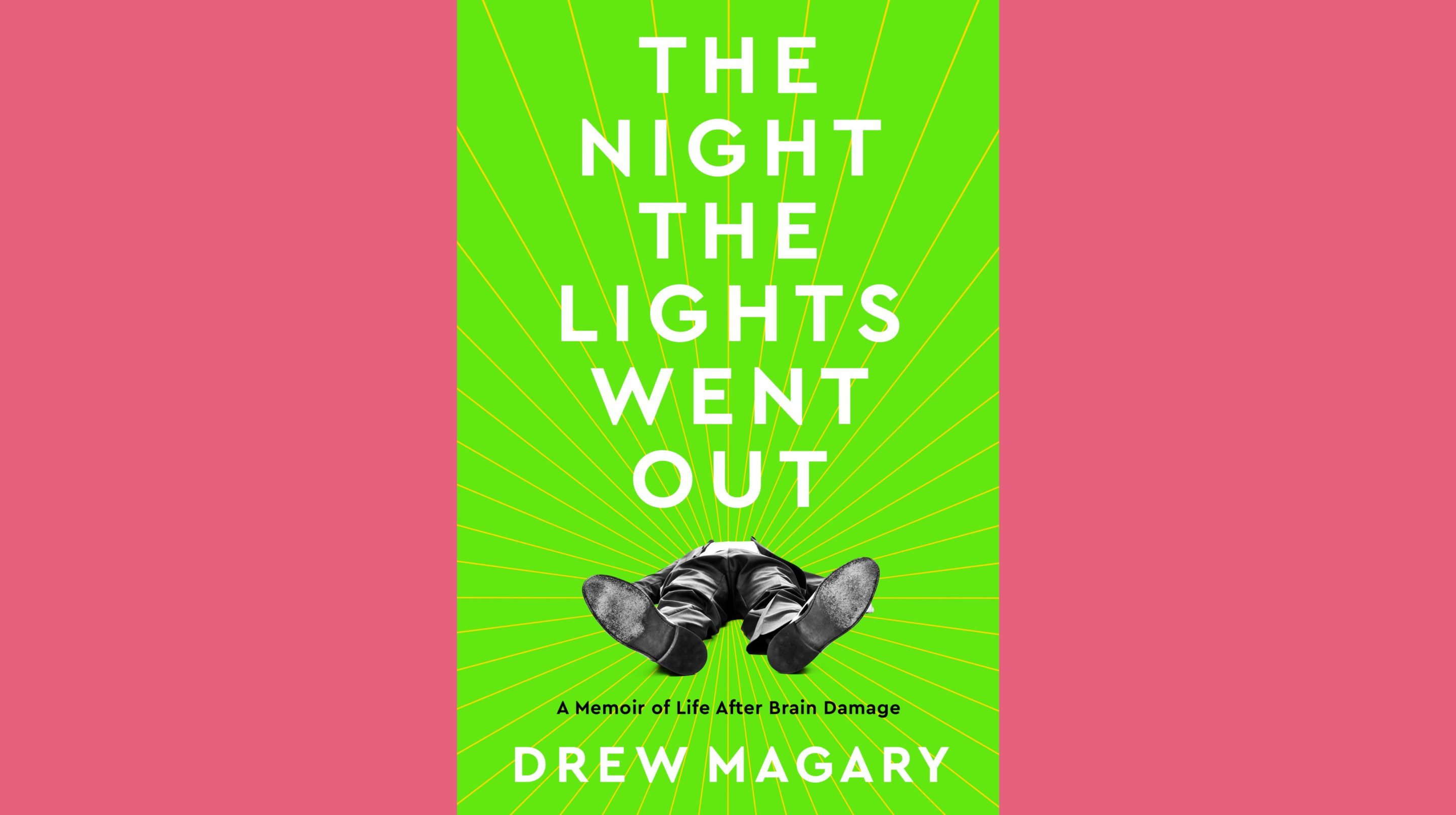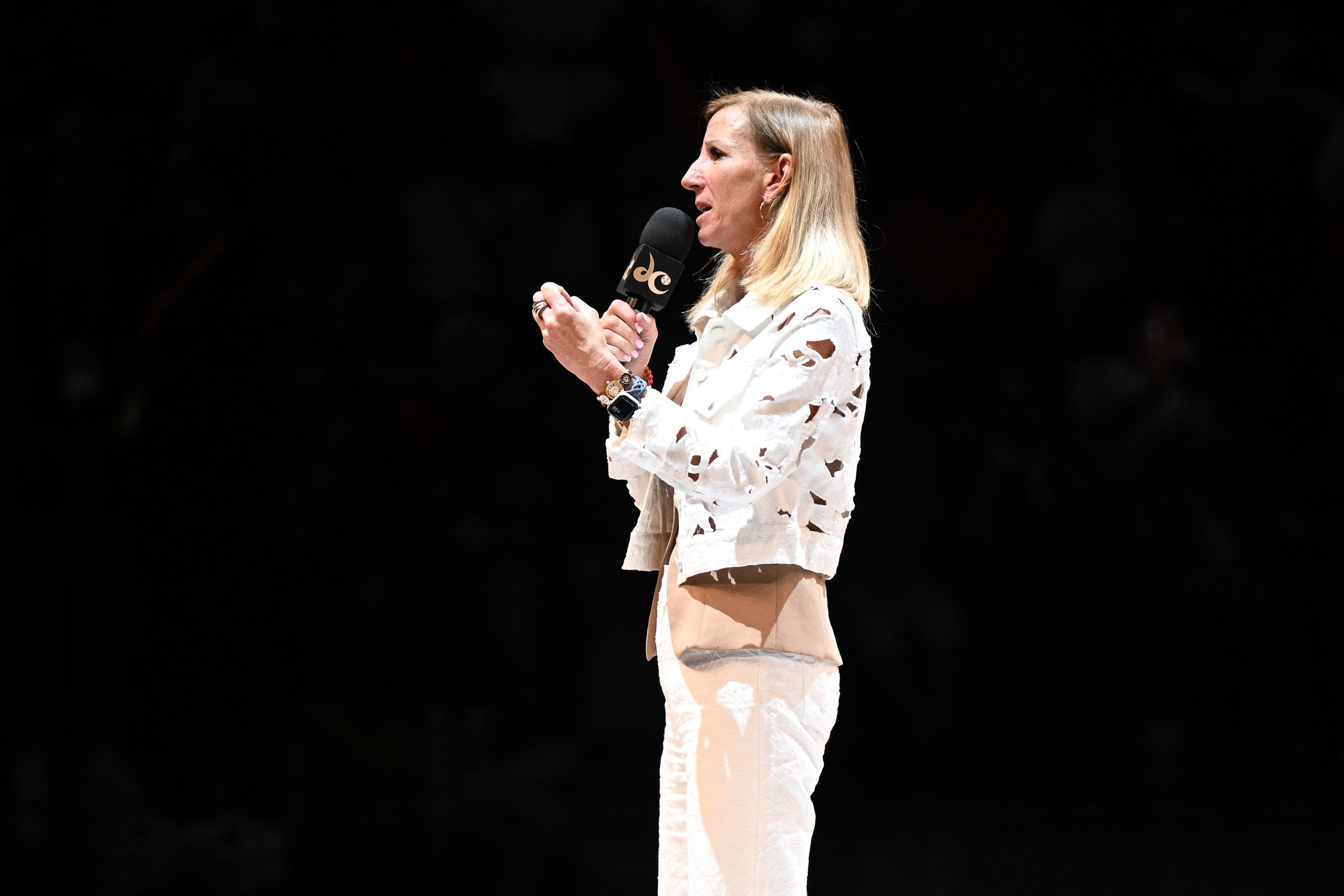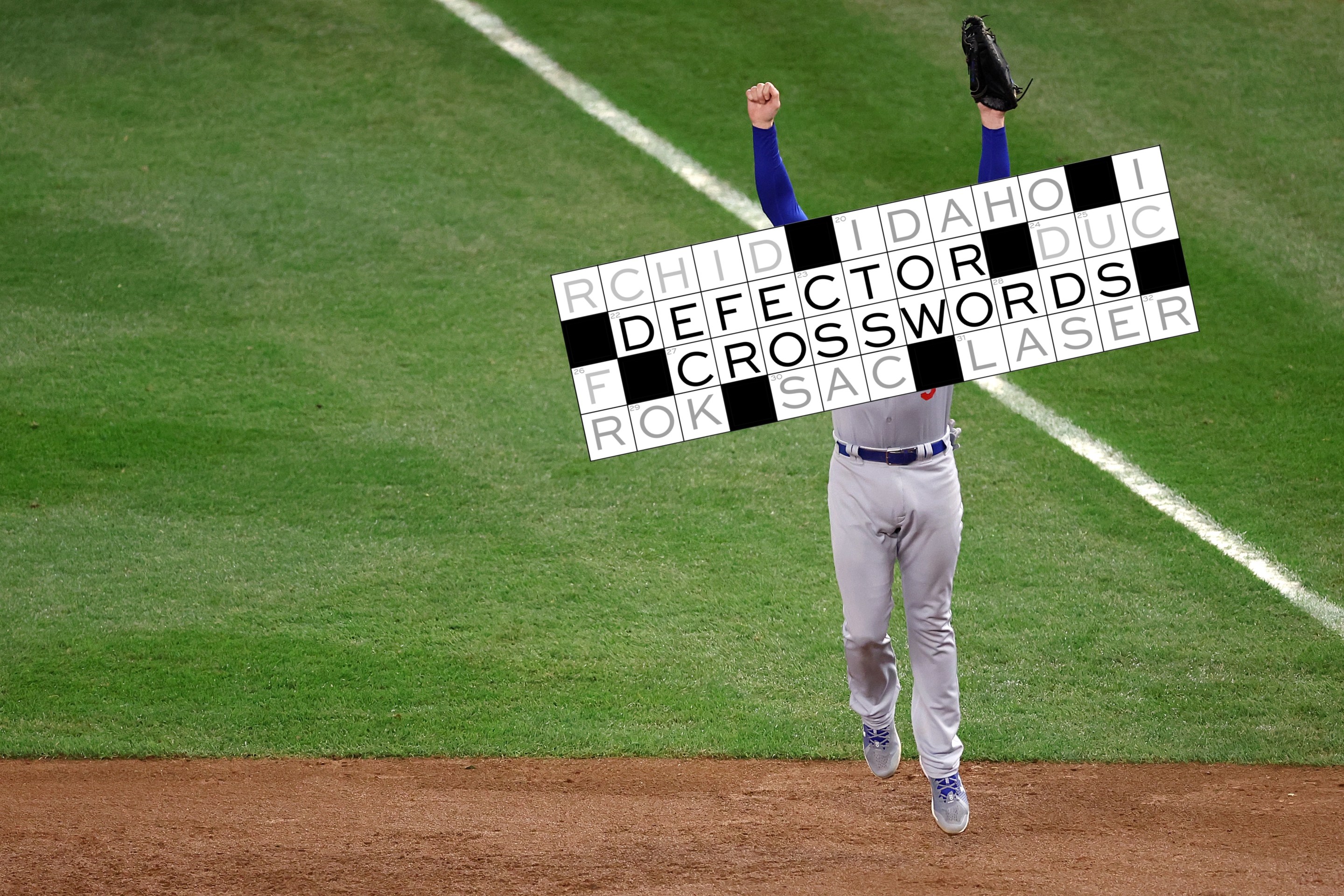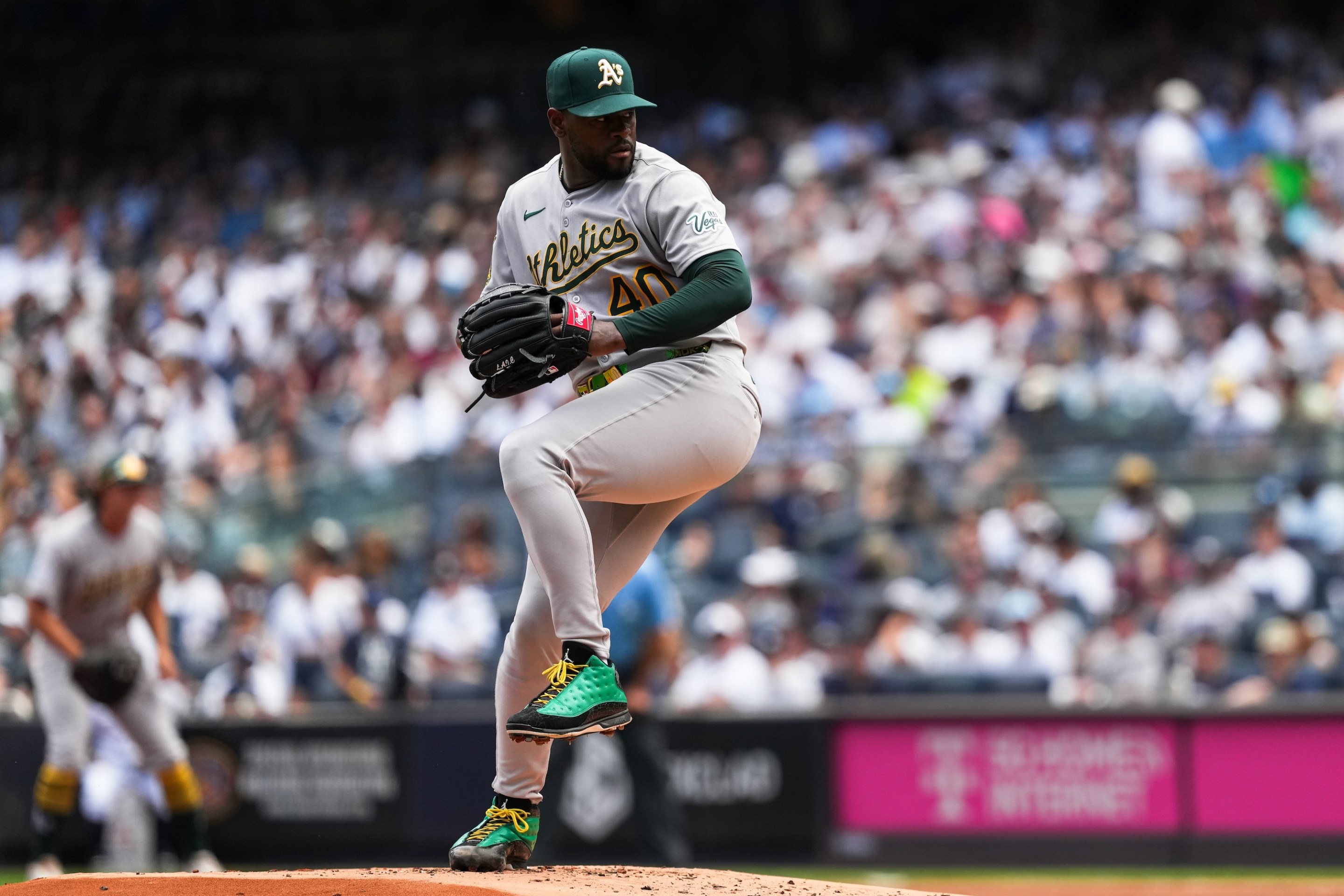Neither writer nor subject needs a lot of introduction here. Our pal Drew Magary, whose brain mysteriously exploded in December of 2018, has written an incredibly affecting and very funny memoir about what happened that night and what’s happened since. One might even say, “exquisitely painful, this work brims with hope.”
In its early chapters, The Night The Lights Went Out takes the form of an oral history. Drew, left without any memory of the accident or the two weeks after it, asks friends, family, colleagues, and medical providers to fill in the blanks. Later, the book acquires a lovely melancholy edge as Drew works to claw back pieces of his life pre-injury. It's a process we become more and more invested in even as its goals start feeling less and less attainable. Drew’s got the gift a million writers would kill for: a voice so singular each sentence in this book can only be his. (I kept hearing passages of the book, as if he were reading it aloud in my head.) His time is quite valuable, often spent on such critical matters as pretending to be Mike Zimmer in a press conference or taking a nap. Still, a few weeks ago, he kindly granted me an hour to chat about what it's like to nearly die and what it's like to write about nearly dying. The Night The Lights Went Out is out today.
The interview has been edited for length and clarity. And secrecy. You’ll never know what was truly said!!!
Hmm, I’m realizing I made the same mistake as when I did this with Kelsey. I’m looking at my notes and it’s a lot of observations about the book, but not really any questions.
You could tell me the observations, and we could banter?
Sorry if this turns into the Chris Farley Show. I think there's this narrative about writing your trauma that says it can be privately cathartic and a good way to process a terrible thing that's happened to you. But one thing you grapple with in this book was that all these other people in your life were traumatized. And to write this, you had to go and interview them. I wonder if you were at all hesitant about doing that, making them relive it.
I tried to be as open as I could with everybody I interviewed to make sure they were OK with it. You can ask as politely as you can, and the other person will still feel obligated, even though you've tried to make it as gentle as possible. But in general, everyone I talked to was more than willing to help, particularly my family, because they liked that I got a book deal out of it—they're gonna see a big shiny book. I told my family, "You don't have to read this if you don't want to." My dad read the whole thing and really loved it. And that made me very happy. My mom stopped halfway through. She just couldn't. She didn't want to read any more of that. And I said that was totally fine. And my sister didn't read it. And I don't believe my brother has either. The publisher was asking, "Can your family do some of the press?" Including my wife. And I said no, they didn't want to be part of it. I think there's always a fine line, and I've been criticized for it in the past. Every writer does this to a certain extent, exploiting your own life for financial gain. I was always trying to make sure that I was writing the book for the book's sake. I didn't wake up from a coma being like, "Oh, I hit the fucking jackpot!"
Right, that ethical dimension is interesting. Especially because a big lesson of yours in this book is that in terms of, like, actual trauma, you maybe suffered the least of it relative to your wife or your parents.
Yeah, I was asleep. And the other thing was that I was brain-damaged. One of the things I didn't realize before this happened to me was that I was always under the assumption that you would know if you were lying to yourself. Like the people who lie to themselves, I always figured they were making a conscious decision to lie. But of course, you're not lying to yourself if know you're lying to yourself. It doesn't work that way. Right? I spent a lot of my recovery in this odd sort of denial fog, thinking I was a person that I really quite wasn't. I was not aware of it. The times I was made aware of it, I didn't like it. And I rebelled against it.
You spend some time in the book on this idea of self-awareness, which is something you need in the recovery process—and I think also something you need to have the job you do, to do the sort of personal writing you do for work. But you mention it can tip into a kind of ugly self-centeredness, where you're only thinking about yourself and—no pun intended—in your own head. Where do you draw a line?
I still don't know. I think I'm still trying to find it. The only way I know is if people tell me. It's just especially difficult now because there's so much performative self-awareness, particularly on Twitter. Basically any tweet that starts with "that feeling when" is going to be like, Aren't I so adorably STUPID, and that's become its own genre of self-branding. You can absorb so much of it that you start doing it yourself without being all that conscious of it. To me, it's always going to be a struggle to sort out whether I'm digging deep and revealing something about myself that has genuine value or connection to other people, or whether I'm just sort of jerking myself off.
If you're asking the world to flatter your flaws.
Yeah, yeah, tell me my flaws are pretty.
Is it surreal to have people telling you about things you did that you don't remember?
When I interviewed everybody, it turned out that what I had remembered about my time in the hospital was wrong. I was brain-damaged. I was on a lot of coma drugs. Things that I thought I remembered were actually things I had hallucinated. Things I thought I had remembered clearly, I had not. So it was very illuminating to have everybody recount to me, "Nah, Drew, you weren't nice on Christmas, you were a cock." It was oddly illuminating to hear that because they had no reason to correct me other than that they knew the truth and I didn't.
Though there are some instances in the oral history where people's accounts are disagreeing with each other, too. Everyone's memory is a little fallible in that way.
Yeah, I mean, mine was the most, of course. But it's a very intense emotional experience and everyone's going to process it differently. What you might remember as being an inspiring moment of everyone coming together under dire circumstances, there's someone else—it's just an awful time they'd rather forget.
One thing I liked about this book, sort of morbidly, is that something I'm looking forward to when it comes to dying is knowing what other people thought of me. I feel like you kind of got the best of both worlds there.
It's weird, because I had funeral daydreams before this, too, where it's like 1,000 people show up and everybody's sad. There's a big, giant, like, 20-foot portrait of me by the fucking altar in the church and there's obituaries in the Times and shit like that. That's all very morbid, and it's very much in the category of daydream—I don't want to fucking die, and then I had this weird thing where I essentially did. (I'm overstating that, right? My heart never stopped. My lungs did, but my heart didn't.) And I got people treating me as if I were about to die. So I had this real-time memorial when I came out of my coma where I got to look back through old Funbags when every guest writer was saying nice things about me, really as if I had passed on. The funny thing was that readers didn't know what had happened to me at the time. So readers were like, "Maybe Drew is dead?" It was this very weird thing where you get a rare glimpse into how people would feel without you in their world and that is very much a gift. It's an oddly, morbidly wonderful thing to experience firsthand. I don't want any of the things that happened to me to have happened to me or to the people I love, of course. It was cute. It was nice to know the people who love me really did love me. I'll always have that.
I should put on the transcript record that I don't want to die either.
Yeah, don't go collapsing on a hallway floor and smash your head into pieces. I wouldn't recommend.
Man, I hope you do get to find that out. I don't really have any solid ideas about what the afterlife is like, but I'd be pretty pissed if I ended up there and I never got the one thing I was looking forward to about it.
Right, you think you can sit on a cloud and watch everybody say, "Ah, Maitreyi, she was so awesome." Instead, you're trapped in the black and you're like, "Hey, I can't see anything! This sucks!"
With my luck...
I was very—and to this day, am very—presumptuous that what happened to me was a fairly decent simulation of death. I didn't have a bright white light. I didn't see heaven. I didn't meet God or anything like that. I just had this sort of blissful slumber and I took that pretty much as what death would be like. I still sort of assume that, but like I said, my heart didn't stop, so I'm being a bit presumptuous there. It could be that when my heart does stop that there is Saint Peter there, and he offers me a box of chocolates or something.
It's one of those annoying things about life, you have to experience some huge disaster to understand its mysteries.
The one thing I do think I know is that whatever happens after I die, I'll be too dead to really care. I won't be upset that I'm dead because I'll be dead.
Have you ever read any Oliver Sacks?
No, this is where I embarrass myself. [overly apologetic two-minute rant about books he hasn't read] I'm fucking terrible and I gotta be a better reader.
Oh, no, he's just this neurologist. His whole deal is—or was, because he's dead—writing about various patients. I remember something he once said about how all advances in brain science have basically been made during wars, when everyone is extremely traumatized and fucked up. I feel like that kind of happened in a micro version for you.
[Googling Oliver Sacks] Yeah! That sounds right. [scrolling through "Oliver Sacks" search results] I learned all about my brain after it got damaged, which is really not the order you want it to have happen, right? Oh, Oliver Sacks is the Awakenings dude! OK. I saw Awakenings in the theater, does that count?
Yeah, that counts! I'll count it. I don't know if this is a function of you having this great writing voice or me knowing you, but I do hear everything you write in your voice.
When my agent pitched the book—he's my agent, so his job is to say nice things about me—but he said in the letter, "There's no barrier between him and the page." I always liked that, always thought that was very, very nice of him. The thing about me is that I assume that's true of everybody. I'm scandalized still when Dan McQuade will be like, "Well, you know, that guy doesn't write his own tweets," about a famous person. In my mind, I'll kind of be disappointed. So much of what I've done has been informed by growing up listening to Richard Pryor and stuff like that. I always figured that performance had to be essentially whatever was in the deepest recesses of your mind.
No barrier between you and the page is a great way of putting it. I think that's exactly right, and it's a very difficult skill. But does that scare you at all? It's a terrifying prospect to me, at least.
No, it doesn't scare me because I've been doing it for so fucking long and I naturally have a big mouth. So anything that happens to me, I just immediately tell people, and that's just how I've always been wired. Other people are more private. I almost envy them. I have a goal for old age, to be more withdrawn and be more stoic and stuff like that. I don't know that I'll really accomplish that. But it is nice to keep things to yourself and have them in. I'm a little bit better about that than I used to be. But it's pretty clear that I'm still pretty open about everything. The only time I've ever thought twice about it was if I opened my mouth too much and somebody I love was like, "Hey, Drew, you weren't supposed to say that about us," or something like that. And that was early in my blogging career. I'm a lot more conscious of that.
Oh, that's funny you say your goal is to be more withdrawn with old age. What do you think is the virtue of being stoic? Is that for your sake, or for other people's?
I think both. The less I have to say, it may become more valuable when I say it. I was always in meetings when I had an office job and you'd have the head honcho sit and listen during the entire meeting and wouldn't say shit. And then he'd say one or two things at the end that were really important and really mattered, and everyone was like, "Oh, shit, that's pretty good." It would be fun to be a quality over quantity guy. Because right now I'm very much a quantity guy. It's not that I hope I'm a fucking hermit and never socialize with anybody because in my real life, I'm sort of too much of that? I actually talked with a therapist about that the other day, that I wasn't very good about making friends outside of work, and outside of our industry, and I need to be better about that. So I do want to be better about that. I don't want to be alone and I don't want to freeze people out or anything like that. It's more about becoming a bit more elegant, socially. And I have a lot to learn on that.
I think I have the opposite problem. I was always nagged by professors to say more in class and thought if I had something to say, I'd say it!
I've read stuff about this, where the way everything's balanced now favors extroverts over introverts, and it doesn't value what introverts do. Of course, I'm an extrovert and I have a natural sort of blind spot where I'm like, Well, why isn't everyone just in there and in the mix all the time? without understanding that some people are just naturally that way or do have reasons to be that way. All of that shit is just stuff I have to learn and think about in terms of dynamics between people. And it's hard because now you're dealing with dynamics between people in reality and then people online and those don't always match up. It's a confusing time in this digital civilization that we're living through. The growing pains are evident and pronounced. I'm at the weird age of not a boy, not yet a boomer. Because I'm going to be 45. So I'm doing all this while the world itself is growing up. It's all these strange dynamics that can give you a fucking headache if you think about it too much. So I try not to think about it too much anymore.
Have you found that doing the work of writing this book, and learning about why you are the way you are, has prompted a curiosity about other people or a better understanding of other people and why they are the way they are?
No, I think I have to be better about that. I really do. I've learned a lot of things about people like me who have sensory disabilities. There's zero doubt about that. I'm much more aware and sensitive about that stuff than I was in the past. But in terms of being a better listener and a better empathizer, I still have work to do. I think I'll always have work to do in that regard.
I liked learning about science in this book. That was pretty fun.
Oh good!
I wrote down a bunch of terms. "Auditory meatus" made me laugh.
You know, I pronounced it wrong? So I always thought it was meat-us, like rhymes with "Wheatus," right? And it's mee-ay-tus.
Oh, that sucks! Mee-ay-tus?
Isn't it a letdown? I was doing the audiobook and they paused and said, "You're pronouncing it wrong. Here's Merriam-Webster."
Well, that's devastating. Never mind, then.
It's funny to have the word MEAT in there, and now it's not there when you pronounce it that way. It's no fun.
Other than that, how did you like being a science writer for a bit?
I liked it. All that stuff interests me. I used to be in an era of the idea that art was at its best when it was cathartic. I worship Bob Mould, whose music scans as very cathartic when you listen to it. I worshipped comics like Sam Kinison growing up, so they were angry onstage. And the idea was they were purging their anger and that was purifying in a certain way. Sam Kinison—that's not exactly the most justified anger in the world, but that was how I perceived it.
Particularly after I spent a year as a political writer, I realized that when I was writing stuff, there wasn't any lasting cathartic effect. It didn't alter my perceptions quite the way I sort of romanticize them to be. It was more of an exercise in expressing myself that I happened to be good at and enjoyed. So I don't view writing through that prism as much anymore. In the case of learning about how the brain works and all that stuff, I was able to step outside what happened to me and I was really interested in how it works. I like lots of pop science and I like lots of pop history and I like learning all this shit. I didn't really know what the brainstem did or why it was located right in the dead center of your skull until I wrote the book and now I'm glad I know all that stuff. It never stops being interesting to me. It's always fun to know that you can't stop learning. There's an infinite amount to learn. You only know, like, I don't know, a micron of it. That always means that there's more to absorb. That's always fun and enthralling, even when it pertains to something that was very, very difficult and trying in the past.
Right, there's a line in your book that says by the time it's published, all these new advancements in brain research would be made. I was thinking, Oh, that rules!
They're never done researching and studying. And learning about it, it's fascinating. Even with the COVID vaccine—and I read your post about it, and then I read some other deep dive on it, Ed Yong or Lawrence Wright—just the processes of how they developed the vaccine, why it worked, how it worked, all that stuff. I find that shit fucking fascinating. I think it's great.
It's—I don't know—the sheer number of things improved in the world through someone's curiosity. It's pretty fantastic.
It's cool! It's the fucking best. It's so cool.
To turn to a slightly grimmer subject, another theme of this book is just how much it sucks to navigate the American healthcare system.
I was lucky because a lot of my shit was paid for. Not all of it, but a good amount. It sucks to add insult to injury. It's bad enough to be sick. That's all you should have to deal with. The idea that you have bureaucratic stress and financial stress heaped upon you after that, it's really shitty. It's not really fair to anybody. Even people who are well off shouldn't have to deal with it. It should be a burden that is relieved of everybody because we're a society, right? We agreed to live together so that should mean implicitly that we take care of each other. And, of course, we don't.
I didn't know, for example, that many insurers don't cover hearing aids.
Yeah! Mine got covered, but I don't think that that is true at all for a lot of other Americans, which sucks because hearing aids cost thousands of dollars apiece and they're invaluable to people who have them. And more people need them. We don't address hearing loss in this country on any sensible level. If we did, I think the ripple effects would be enormous. It would totally make everything better.
Right, you do compare it to vision loss, and it seems like we do a much better job of normalizing and addressing that.
I don't think it's necessarily a deliberate wrong being committed by American society. I think it's just an odd sociological evolution where glasses became widely accepted but hearing aids are still sort of considered old man shit. I don't think the Illuminati were behind that happening. I think it would be very easy if all hearing aids cost 100 bucks or were fucking free and everyone was able to easily get their hearing checked and was encouraged to wear them by friends and loved ones. I think it can be very, very easily normalized. I really do.
I'm envisioning—do you know that photo of the utopian society, that meme?
[very long pause] I think so?
[babbling, very poorly describing it, eventually giving up] Anyway, one thing that was funny about this to me is it's difficult to distinguish some of the consequences of the injury from the normal ones of aging.
There were things I think about in terms of, "Oh well, that's just all old man shit." But even if that's true, it doesn't mean you leave it untreated, right? The number of people who have hearing loss and don't use hearing aids in America is really staggering. I sound like a lobbyist when I say that, but it's true and that goes for old people too. Everyone's just like, "OK, well that's just how it is with old people," but it doesn't have to be that way for fucking old people!
Right. As freakish and specific as this accident was, I think some of the emotions of the book aren't unique to you. You describe this yearning for someone you once were that you'll never recover again.
Yeah, it's standard aging shit.
Even if you haven't experienced a traumatic brain injury, everyone's going to change. That's how life works. It's something everyone should aspire to, that kind of understanding. It's easier said than done, though.
It is. Accepting the progression of life and in doing so accepting yourself as is. Right now, I'm comfortable being a deaf person. I was definitely not when I first realized I was deaf. It took a couple years and some modifications. And I do know that I probably will get deafer somewhere down the line and I'm now more prepared for it than I was before.
Thank you for this interview. Also, I think someone in the oral history—Gabe, maybe?—mentions singing "The Gambler" at karaoke and I had that song stuck in my head for a week after I finished this.
Oh, that's very bad. I'm very sorry.
No! I love it. I love "The Gambler."
Oh, well then I feel good about it. I think that's great.
The Night The Lights Went Out is out from Harmony today.







